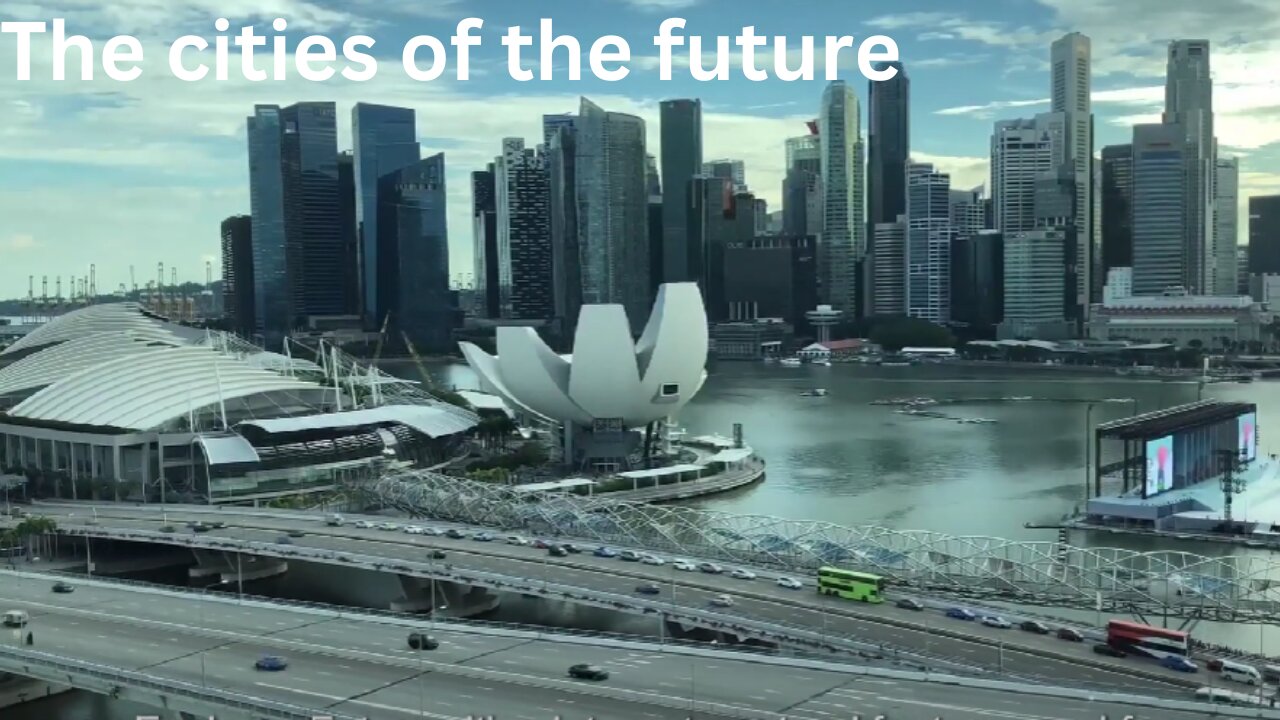Premium Only Content

The cities of the future.
In the cities of the future, innovative approaches will address pressing challenges while enhancing quality of life. Let's explore some key aspects of these forward-looking urban environments:
1. Designing to Scale:
Urban Hubs: These densely developed centers prioritize sustainable land use within and beyond their borders. They provide essential resources like water, food, and recreation. High-capacity transit systems reduce emissions and improve commute times.
Ecology: Future cities integrate natural features and forces, safeguarding wildlife habitats and natural resources. Compact and dense city layouts minimize ecological impact. Rainwater is collected and filtered through bioswales and pools for reuse.
Social Transit: Regional high-speed rail stations become bustling hubs for business and social activities.
Energy: Buildings feature green roofs and solar panels, promoting sustainable energy and small-scale farming. The goal is 100% renewable energy production within or near the city, making it self-sufficient. Buildings share energy resources, balancing consumption and generation.
Urban Farms and Gardens: Hydroponic technology enables urban farming in new communities and developments.
Waste: Waste becomes a resource, producing energy or alternative materials. Landfills transform into other uses after soil remediation. Wastewater is treated for irrigation or human consumption, and parks allow water to recharge the water table.
2. Smart Buildings:
Modularity: Buildings incorporate natural elements and are largely modular, allowing rapid adaptation to changing needs.
Sustainability Mandates: Practices are mandated across product life cycles, from food production to disposal. Global standards ensure organic farming and animal welfare, with local sourcing of produce.
Sky Gardens: Green spaces within buildings enhance natural airflow and provide shade and social areas.
3. Accessibility and Safety:
As urban populations grow, cities prioritize accessibility and safety. Residents enjoy streamlined access to nature, services, and automated technology.
The cities of the future will be dynamic, resilient, and responsive to the needs of their inhabitants, fostering sustainable living and innovation.
-
 LIVE
LIVE
TimcastIRL
2 hours agoTrump To SHUTTER 120 IRS Offices In MASS PURGE, Democrat LEAKED Tax Info w/Mike Crispi | Timcast IRL
13,360 watching -
 DVR
DVR
Kim Iversen
3 hours ago💰 CHA-CHING! 💰 Trump Unveils Big Money Plans For Gaza AND America
19.9K34 -
 LIVE
LIVE
Flyover Conservatives
15 hours agoUkraine’s Dirty Secret: The Christian Persecution No One Wants to Talk About - Alex Newman | FOC Show
1,068 watching -
 2:00:20
2:00:20
Glenn Greenwald
7 hours agoThe View from Moscow: Key Russian Analyst Aleksandr Dugin on Trump, Ukraine, Russia, and Globalism | SYSTEM UPDATE #414
46.2K16 -
 1:10:55
1:10:55
Donald Trump Jr.
5 hours agoBREAKING NEWS: My Father Revokes Biden-Maduro Oil License, LIVE with Maria Corina Machado | Triggered Ep.220
126K153 -
 1:25:29
1:25:29
Sarah Westall
3 hours agoX-Files True History, Project Blue Beam, Cabal Faction War w/ Former FBI Agent John DeSouza
41.4K3 -
 7:03:49
7:03:49
Dr Disrespect
10 hours ago🔴LIVE - DR DISRESPECT - NEW PC VS. DELTA FORCE - MAX SETTINGS
129K26 -
 49:04
49:04
Lights, Camera, Barstool
1 day agoIs The Monkey The Worst Movie Of The Year?? + Amazon Gets Bond
42.8K4 -
 24:19
24:19
Adam Carolla
22 hours agoDiddy’s Legal Drama Escalates, Smuggler Caught Hiding WHAT? + Philly Eagles & The White House #news
49.2K7 -
 10:12
10:12
Mike Rowe
2 days agoClint Hill: What A Man. What A Life. | The Way I Heard It with Mike Rowe
66.7K9